July 22, 2020, marked the third day of the Tsinghua Global Summer School supported by the School of Economics and Management (Tsinghua SEM) with the theme The Economy Post-Pandemic. A series of exciting courses that incorporated educational, innovative, and interactive features were presented through different lecture formats, allowing students to explore the global economic development trend through various topics such as the global value chain, the China-US trade war, and digital transformation under the circumstances of the pandemic.
Professor Bai Chong-En, Dean of the School of Economics and Management at Tsinghua University, delivered a keynote speech revolving around the core of today's topic, entitled Global Value Chain. Quoting the trade balance between China and the US, and the production line of Apple's iPhone as an example, Dean Bai reinterpreted the trade data from the perspective of the GVC while emphasizing its importance. He pointed out that by examining the production from 1995-2017 as an indicator of global GDP, it was easy to realize the increasing trend of the amount of simple GVC, traditional GVC, and complex GVC. Dean Bai also suggested that the GVC has offered developing nations the opportunity to better integrate into the global economy. Using China as an example, he explained how China has become the hub of worldwide production and trade networks through revolutionary efforts such as opening-up, market reform, and local competition.
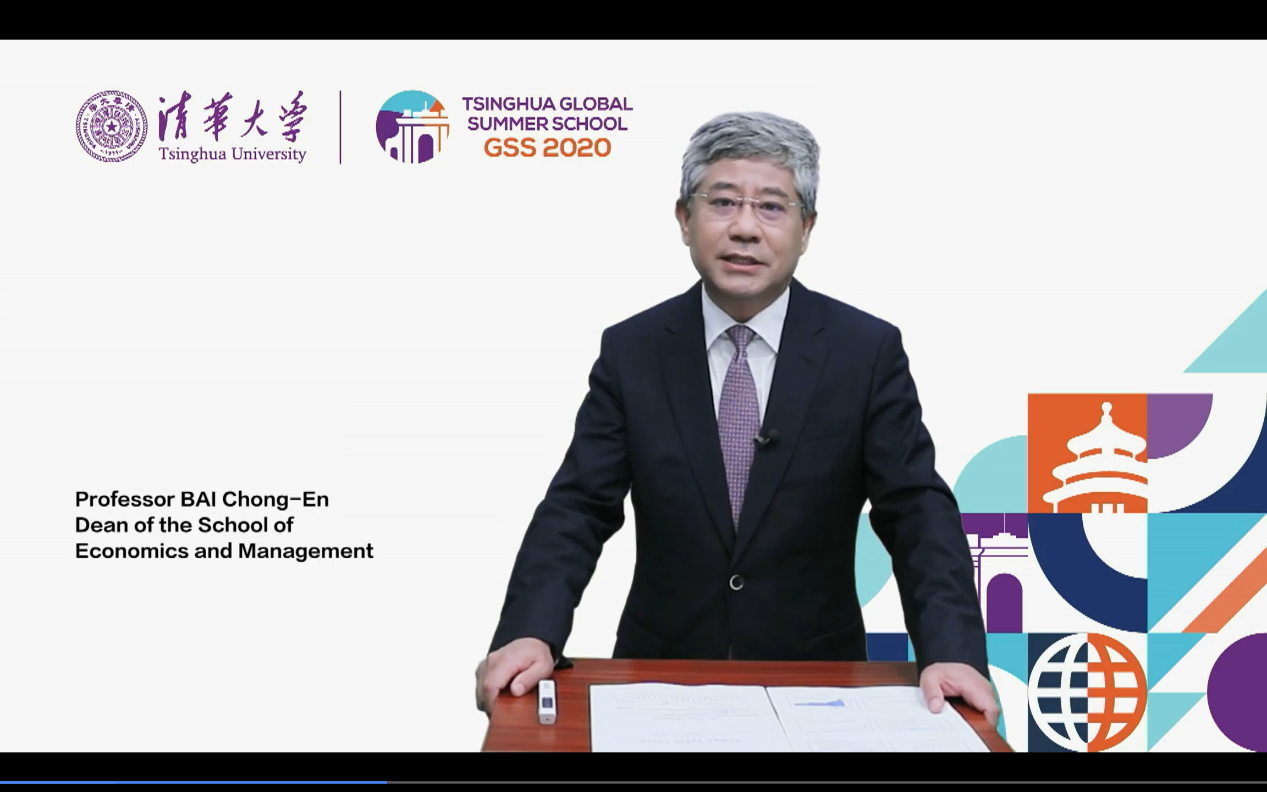
According to Dean Bai, the impact of trade was not responsible for the decline in the manufacturing employment of developed economies. Trade has created higher income, which in turn helps to drive more demand for the service industry. This would allow more job opportunities to emerge, offsetting the job losses from the manufacturing sector. However, he also noted out that such benefits will not be equally distributed within countries. Dean Bai suggested that governments and public administrators should develop better policies to benefit a wider population, which would then help gain public support for globalization. Meanwhile, he pointed out that although a broader domestic market and technological advancements have brought China more opportunities, issues such as the declining labor cost advantage, the China-US trade war, the COVID-19 pandemic, and regional protectionism still pose great challenges for China's trade development.
Dean Bai gave a comprehensive and compelling keynote speech through using a different frame of reference to explain trade and economic development in a post-pandemic economy. Through this, students were able to better understand the course content for day 3 of the GSS with the knowledge framework built up by Dean Bai.
Later in the evening, the Dean of Tsinghua’s International Affairs, Professor Li Jinliang, gave a keynote speech on The Chinese Economy: Prosperity and Prospects. Starting with China's economic achievements, Professor Li visualized how the Asian region was driving the global economy with rigorous data such as global textile industry export data, the distribution of crude steel production, and global GDP mapping. He mentioned that since 1978, China's economic boom has been the result of industrialization and urbanization. Despite global society narrating it as a "miracle", China’s previous strong socio-economic foundation should not be disregarded. Today, China's economy has entered into a new stage that has bought about new trends, opportunities, and challenges. The transition from "high-speed growth" to "medium-high-speed growth," continuous optimization and upgrading of the economic structure, the gradual improvement of consumer demand in the tertiary industry, and narrowing the gap between urban and rural areas are all indicators of China stepping into a new innovative era.
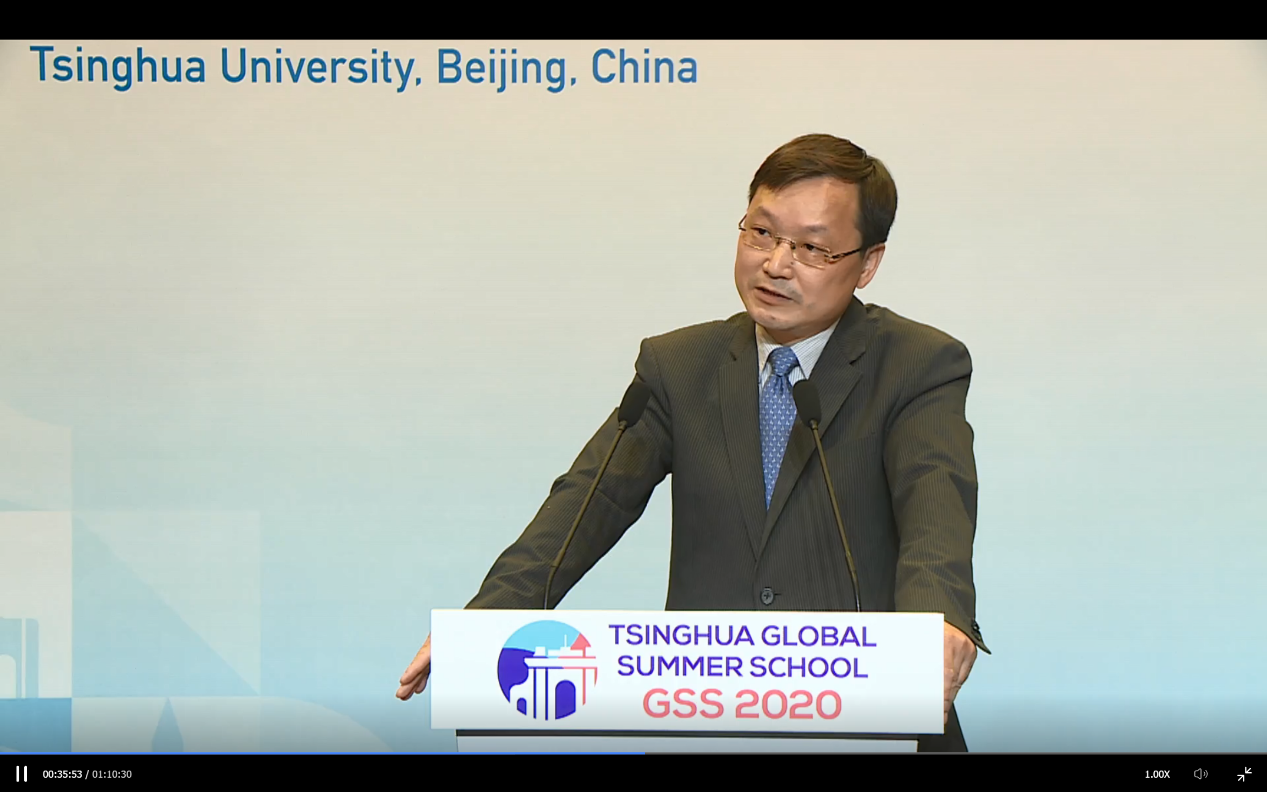
During the interactive session, Professor Li answered a question by one of the students regarding ways to improve rural living standards and narrow the gap between urban and rural areas. He said that China's achievement in providing full coverage of the new rural cooperative medical system across the country and the new rural pension insurance system was a practical way to improve rural living standards and bridge the gap between rural and urban areas. Urbanization, as one of China's long-term strategies, is continuously transforming rural and urban populations. As more of the rural population enters new urban areas, a reduction in economic and educational disparity is seen between the two populations which in turn sees greater integration.
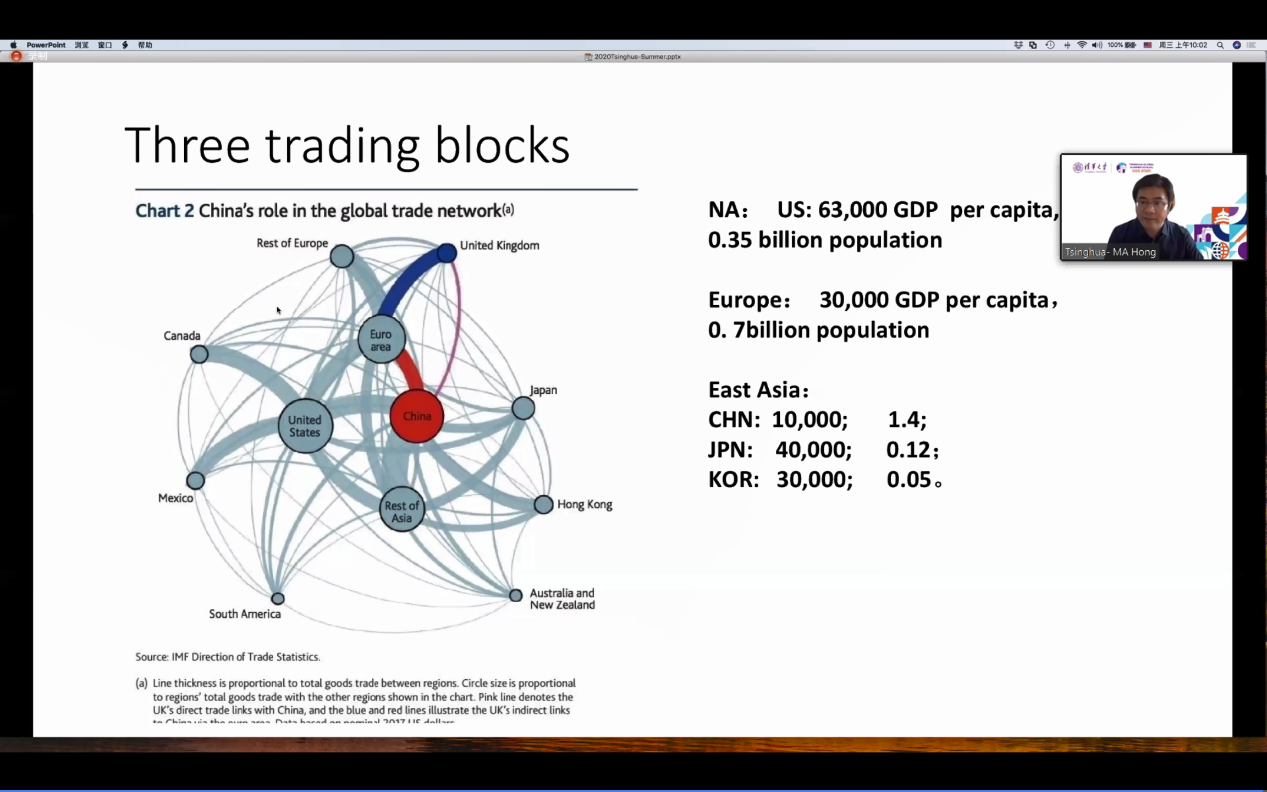
At 9 am, the first lecture was given by Professor Ma Hong, entitled Return to Protectionism: the US-China Trade Conflicts before and after the Pandemic, which centred around the Sino-US Trade war, the reconfiguration of the global supply chain, and the potential of global decoupling that would bring about significant challenges to international society. Through detailed analyses of the global trade environment and its impact, Professor Ma discussed development trends of the future world trade system given the circumstances brought about by the pandemic.
"Instead of presenting straightforward text, the Professor displayed many objective statistics for us to analyze, " said student Chen Po-Hsun Ben from the City University of Hong Kong in summarizing his new perspective gained on the China-US trade war.
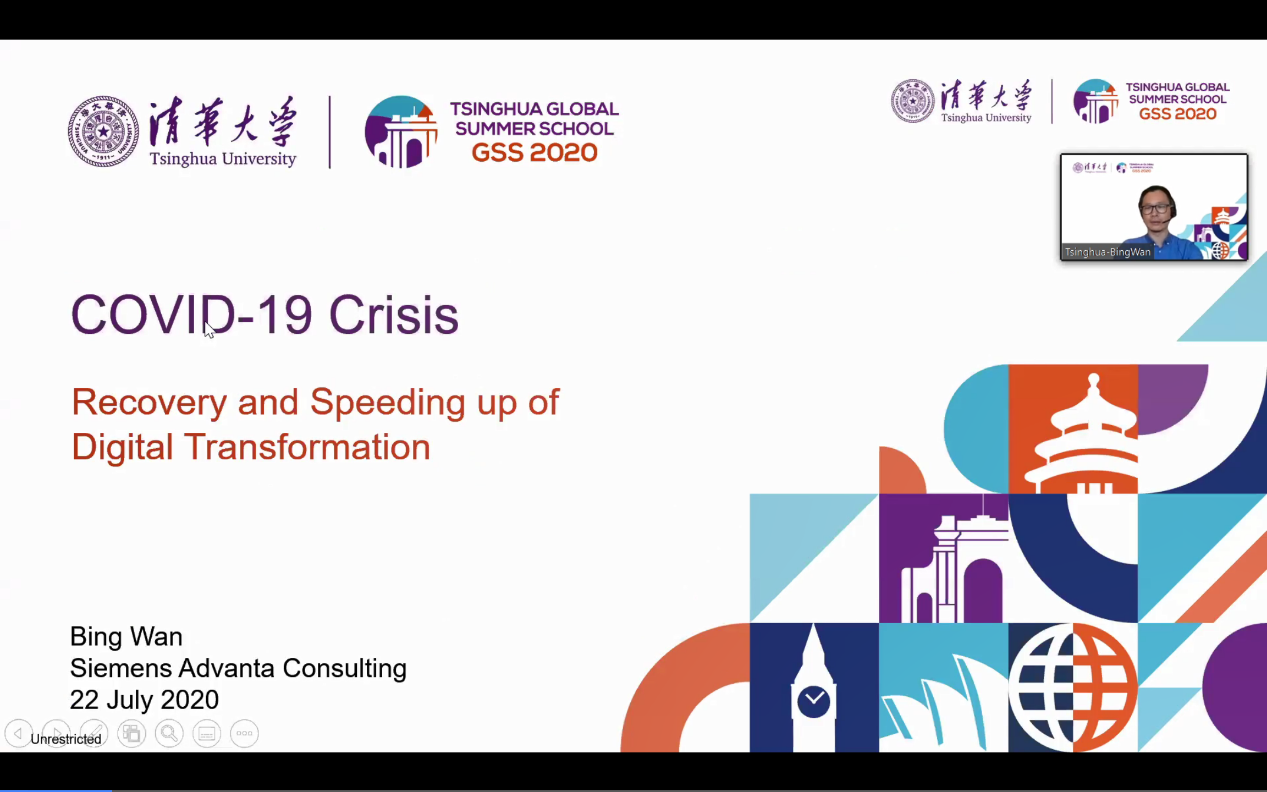
At 4 pm, the second lecture was given by Mr. Wan Bing, the Vice President of Siemens Limited China and Head of the China Office at Siemens Management Consulting (SMC), themed COVID-19 Crisis Recovery and Speeding up of Digital Transformation. In his lecture, Mr. Wan discussed the significant risks faced by companies due to the pandemic and outlined the importance of identifying key priorities that would serve as a guideline for decision-making and crisis management. Mr. Wan also mentioned the various opportunities presented to companies, individuals and innovators during the pandemic in terms of collaboration.
The third day of Tsinghua University's 2020 Global Summer School (GSS) ended with a webinar titled New Infrastructure and New Economy. Hosted by Professor He Ping from the Department of Finance of the School of Economics and Management, he was joined by two distinguished guests: Mr. Ming Chiu, a senior expert from Luohan Academy and former Associate Director at Ant Financial Research Institute, and Professor Yao Shujie of Chongqing University, a distinguished Professor of Yangtze River Scholars. Their discussion revolved around how the pandemic affects 5G, Big Data, Artificial Intelligence and the Industrial Internet, among others. In-depth reviews were also conducted on online and offline business models, which inspired active discussion and questions among the students.
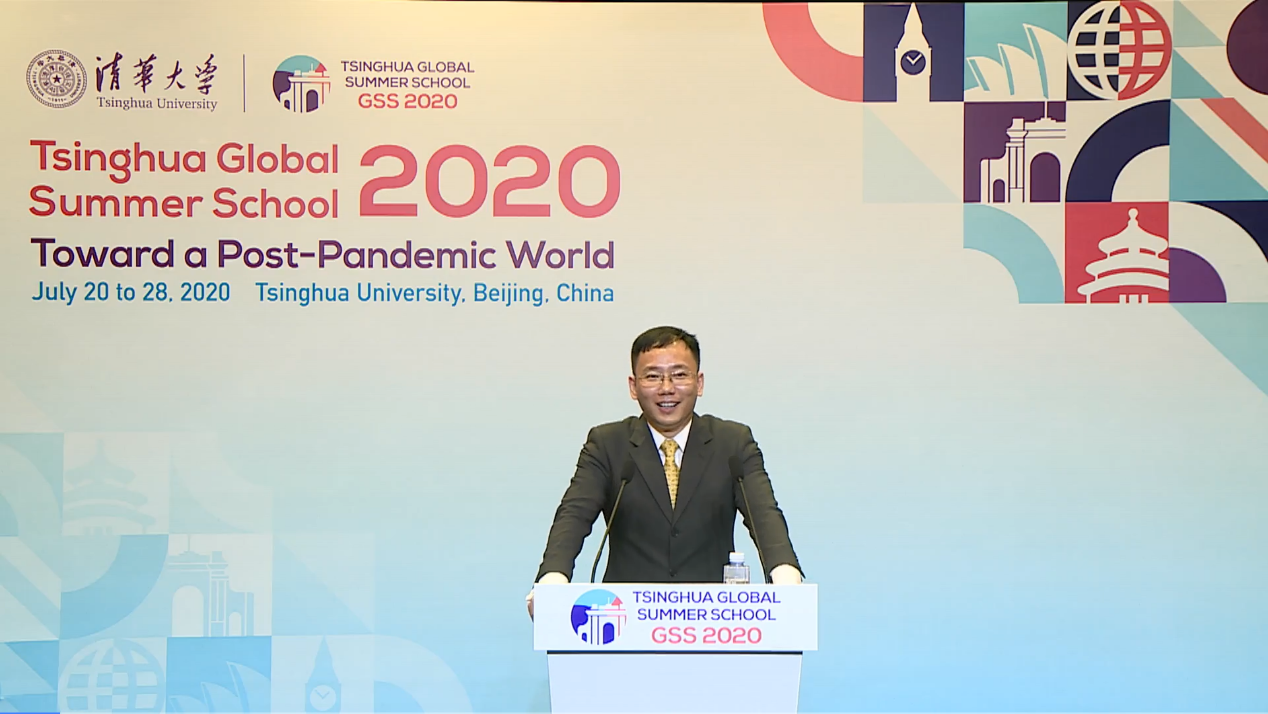
As the day concluded, Asim Muhammad Wasim, an international student majoring in mechanical engineering from the South China University of Technology, said that today’s course content allowed him to better understand the current global economy and the post-pandemic world as a whole. Asim noted that the curriculum of Tsinghua GSS covering all aspects provided students with an opportunity to understand China’s policies during and after the pandemic. The lectures given by well-known Professors who shared their experiences in academia have also allowed students to learn more about progress and research in different fields.
The Tsinghua University online Global Summer School (GSS) 2020, entitled “Toward a Post-Pandemic World” is a 9-day program organized collaboratively by 17 Tsinghua academic institutions, including ten different schools and departments, five overseas institutions, and two international associations for higher education initiated by Tsinghua. GSS explores our post-pandemic world through various disciplines - economics, education, society, artificial intelligence, climate change, and leadership - and engages with students through lectures, group discussions, and cultural events, integrating academics with innovation and interaction.
Reporter: Matthew Aw
Photos: Qiu Yinghan, Chang Zhidong, Li Ruyi
Editors: Guo Lili, John Olbrich